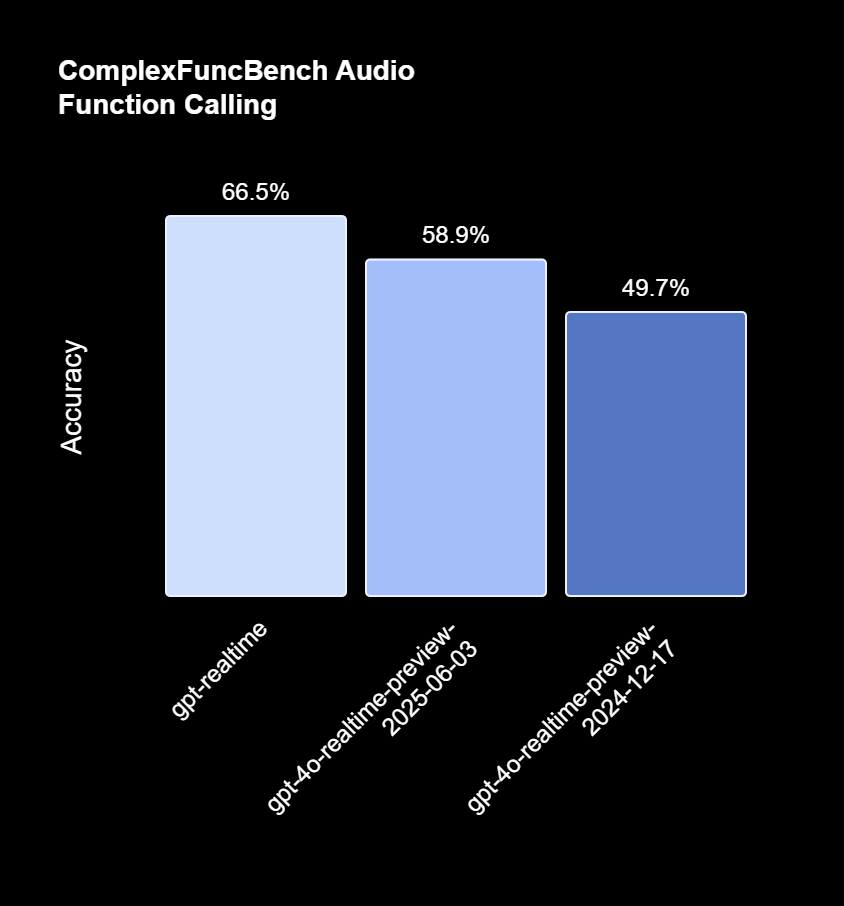OpenAI's latest release, gpt-realtime, together with a revamped Realtime API, is redefining what's possible for voice agents. By directly processing and generating audio in a single model, this technology unlocks faster, more expressive, and highly reliable conversational AI experiences that are set to reshape industries reliant on voice interaction.
Key Advances: Natural, Intelligent Conversations
Unlike previous multi-step pipelines, gpt-realtime offers a seamless audio experience. Its end-to-end architecture slashes latency, enabling instant, context-rich responses that sound authentically human.
- Enhanced Audio Quality: Human-like intonation, emotion, and pacing create lifelike conversations. The addition of two new voices (Cedar and Marin) along with improvements to existing ones, highlights the model’s versatility. Developers can instruct the model to use specific accents or tones for tailored interactions.
- Superior Comprehension: The model excels at understanding system messages, user prompts, and even non-verbal cues. It fluently switches languages mid-sentence and achieved an impressive 82.8% on the Big Bench Audio reasoning benchmark, outpacing its predecessors.
- Precision Instruction Following: Adherence to developer instructions now stands at 30.5% on the MultiChallenge audio benchmark, a significant improvement from earlier versions, ensuring more reliable agent behavior.
- Smarter Function Calling: Voice agents can now invoke external tools with greater accuracy and timing. Asynchronous function calling keeps conversations smooth, even when waiting for tool responses, making AI agents more practical for real-world tasks.
Realtime API: Empowering Developers
The updated API introduces several developer-centric features that expand the capabilities and ease of building advanced voice agents:
- Remote MCP Server Support: Integrate new tools effortlessly by connecting to remote MCP servers and updating session settings as needed.
// POST /v1/realtime/client_secrets
{
"session": {
"type": "realtime",
"tools": [
{
"type": "mcp",
"server_label": "stripe",
"server_url": "https://mcp.stripe.com",
"authorization": "{access_token}",
"require_approval": "never"
}
]
}
}- Image Input: Users can now upload images, enabling the model to answer questions about visual content. This enhancement adds a new dimension to how users interact with voice agents.
{
"type": "conversation.item.create",
"previous_item_id": null,
"item": {
"type": "message",
"role": "user",
"content": [
{
"type": "input_image",
"image_url": "data:image/{format(example: png)};base64,{some_base64_image_bytes}"
}
]
}
}- SIP Phone Calling: Native support for SIP means agents can bridge the gap to traditional telephony, connecting with public networks, PBX systems, and desk phones.
- Reusable Prompts: Developers can save, manage, and deploy prompts, tools, and message templates across sessions, simplifying onboarding and ensuring consistency in production environments.
Safety, Privacy, and Compliance at the Core
OpenAI prioritizes robust safety and privacy measures throughout the Realtime API. Built-in classifiers actively intercept conversations that breach content policies, while the Agents SDK allows for custom guardrails. With EU data residency options and clear privacy practices, the platform meets strict regulatory requirements, making it suitable for enterprise adoption.
Strict usage policies prohibit misuse for spam, deception, or impersonation. Preset voices safeguard against malicious impersonation, and transparency with users is mandatory whenever AI systems are employed.
Access, Pricing, and Onboarding
Both gpt-realtime and the improved Realtime API are now publicly available. OpenAI has reduced pricing by 20%, offering detailed token-based rates for efficient cost management. Developers can fine-tune context and token usage, enabling longer, more meaningful conversations while controlling expenses.
Comprehensive documentation, guides, and a Playground for live experimentation make it easy for teams to start leveraging these new tools and capabilities.
The Future of Conversational AI
The launch of gpt-realtime and the upgraded Realtime API signals a breakthrough moment for voice-enabled AI. With more natural dialogue, advanced intelligence, and developer flexibility, industries from customer service to education can now deliver AI conversations that closely mimic human interaction. OpenAI’s advancements position it at the leading edge of conversational technology.
Source: OpenAI News: Introducing gpt-realtime and Realtime API updates


New OpenAi Realtime API Now Available for Voice Agents